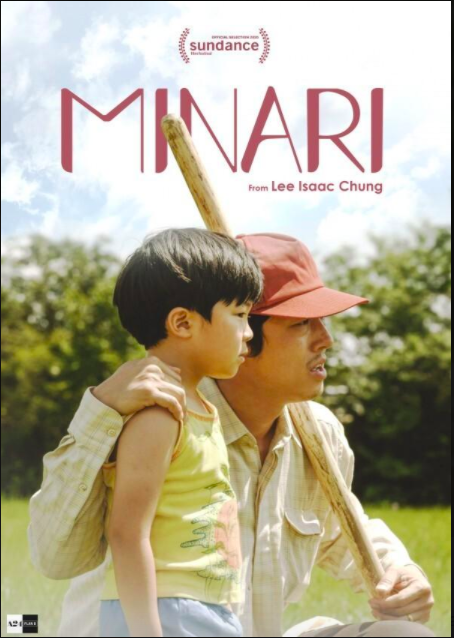The Academy Award-nominated “Minari” is a moving, superbly acted drama
Lee Isacc Chung’s “Minari” was first released at the Sundance Film Festival on January 26, 2020, and immediately received critical acclaim and won several festival awards. It was released on streaming services this year, 98 percent of critics on Rotten Tomatoes have given it a positive review, and it has been nominated for six Academy Awards: Best Picture (Dede Gardner, Jeremy Kleiner, and Christina Oh), Best Director (Chung), Best Actor (Steven Yeun), Best Supporting Actress (Youn Yuh-jung), Best Original Screenplay (Chung), and Best Original Score. It focuses on a Korean immigrant family, the Yi family, who move from California to rural Arkansas in an attempt to become successful farmers.
If you want to see it (and you should), you should be aware going in that it is the opposite of fast-paced. The film’s plot moves deliberately, with a focus on simple observation of the Yi family. The screenplay’s style of storytelling is not as engaging on a moment-to-moment basis as some films (except in the fantastic final scenes), but it does do a very good job at letting the audience get to know the characters and their internal struggles. Fortunately, getting to know the Yi family is an entirely worthwhile endeavor. Four of the five main characters are well defined and well acted (daughter Anne is the odd one out), and that’s more than most films can boast. The way the script develops its characters is impressive, even if it’s on the slow-side and perhaps not one of the very best of the year.
The initially prickly but eventually warm interactions between 8-year-old David (Alan Kim) and his grandmother Soon-ja (Yuh-jung) are especially enjoyable, which provides humor as well as drama. Just watching David’s gradual appreciation of Soon-ja, and her evident delight as their relationship deepens, is truly wonderful and enough to make “Minari” worth watching. The other main plotline—the conflicted relations between father Jacob (Yeun) and mother Monica (Han Ye-ri)—is similarly strong dramatically. Both Yeun and Ye-ri give tremendously good performances, attuned to their characters’ personalities as well as moment-to-moment emotions. During one wordless minute-long take near the end, Yeun speaks volumes with his face—it’s the character’s lowest moment, and Yeun makes it even more powerful. Any win by Yeun or Yuh-jung at the April 25 ceremony would be well-deserved
However, while the performances and screenplay were completely deserving of their acclaim, neither the direction or music were particularly noteworthy. The score has very few memorable themes or moments, and usually functions more as background music. Ludwig Goransson’s score for “Tenet” would have been a more deserving nominee. Similarly, Chung’s direction, although good, is not one of the five best of the entire year. A more visually dynamic film like “Wolfwalkers” (directed by Tomm Moore and Ross Stewart) would have been a good choice there.
However, that doesn’t mean “Minari “is a bad film, or even close to it. It has some of the year’s best performances and a strong script, and that’s enough for it to be very enjoyable. One of the eight best films of the year? Perhaps not, but I’m glad that the Academy made it more well-known—I don’t know if I would have seen it if it hadn’t gotten so many nominations. The film’s slow place might not appeal to everyone, but its universal family story just might.
“Minari” is available to watch on many streaming platforms, including but not limited to Amazon, Apple TV, Google Play, Vudu, and YouTube.













